Chapter 6 Tournament week clipping volume

Practice putting greens during the 2015 KBC Augusta Tournament
The KBC Augusta golf tournament is held the last week of August at Keya Golf Club near Fukuoka.8 The greens are korai (Zoysia matrella) and when the greens are mown, the volume of clippings is noted.
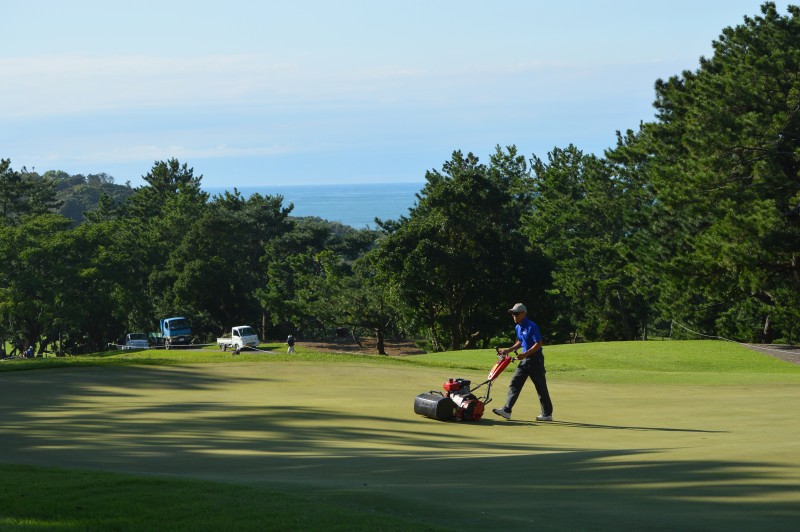
Mowing the 16th green at Keya GC; the volume of clippings will be measured when the mower basket is emptied
These data are collected not only during the tournament week, but throughout the year when the greens are mown.
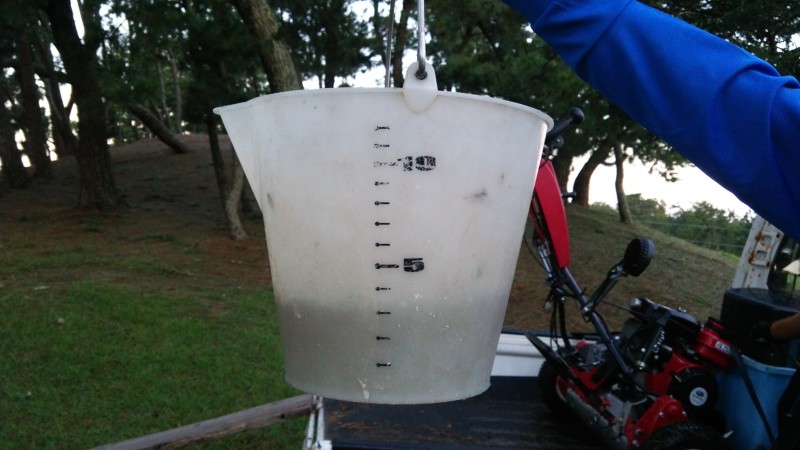
A bucket graduated in liters used for measuring clipping volume
Andrew McDaniel, the greenkeeper at Keya GC, shared the clipping yield data with me and I’ve summarized it in these charts.
The average daily clipping yield, plotted week by week through the year, shows that the grass starts growing at the end of March, reaches a peak in the hottest weather of July and August, before dropping down due to tournament preparations. This reduction in clipping volume is achieved by reducing the N rate, only adding irrigation to prevent dry spots, and applying trinexapac-ethyl.
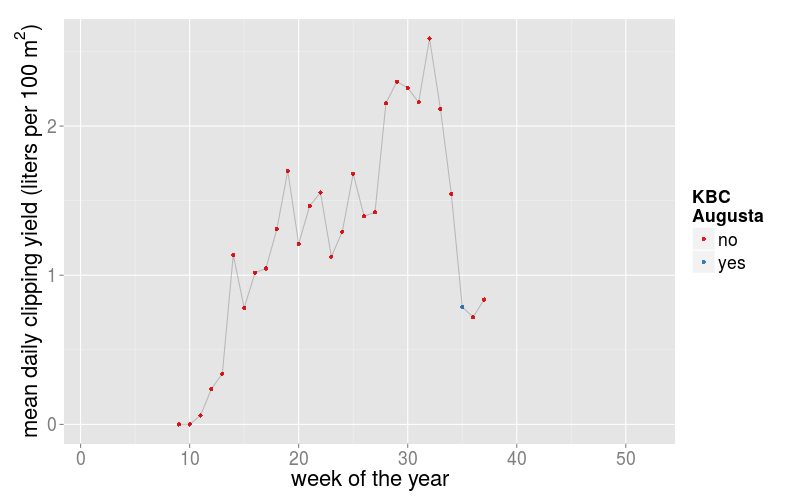
Keya GC mean daily clipping volume by week in 2015
Looking just at August of 2015, one sees there were 4 days when the greens could not be cut due to heavy rain. One of those days was 25 August, the Tuesday of tournament week, when a typhoon came through. Not surprisingly, the clipping volume is larger on the day after a missed mowing.
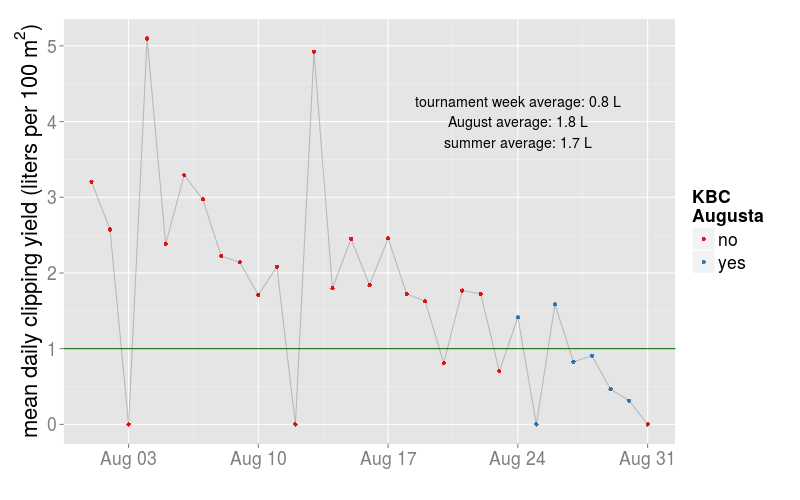
Keya GC mean daily clipping volume in August 2015
There was a downward trend through August, with the maintenance being done in a way that targets a clipping yield during tournament week of less than 1 liter per 100 m2 of green area.
Looking at clipping volume every day in 2015, it is even more clear when the grass starts growing in the spring, and also that the korai doesn’t really grow until after the rainy season, when the temperatures increase. It is only in July and August when the grass is growing quickly. This chart also shows the days during the season when the greens could not be mown.
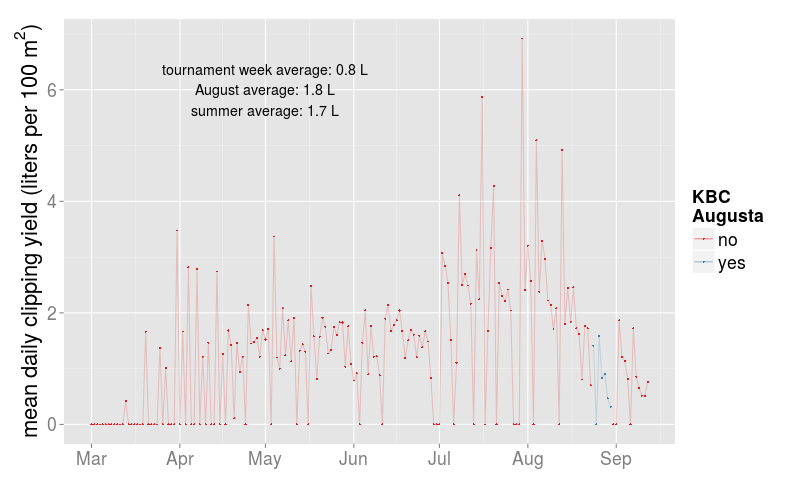
Keya GC mean daily clipping volume in 2015
Looking at clipping volume for the 2013, 2014, and 2015 KBC August tournaments, one can see the 2014 and 2015 tournaments had less than 1 liter per 100 m2 from Thursday through Sunday. Based on measurements of green speed and evaluation of ball roll, the goal in 2016 will be to get the clipping yield down to the 1 liter level by the start of tournament week.
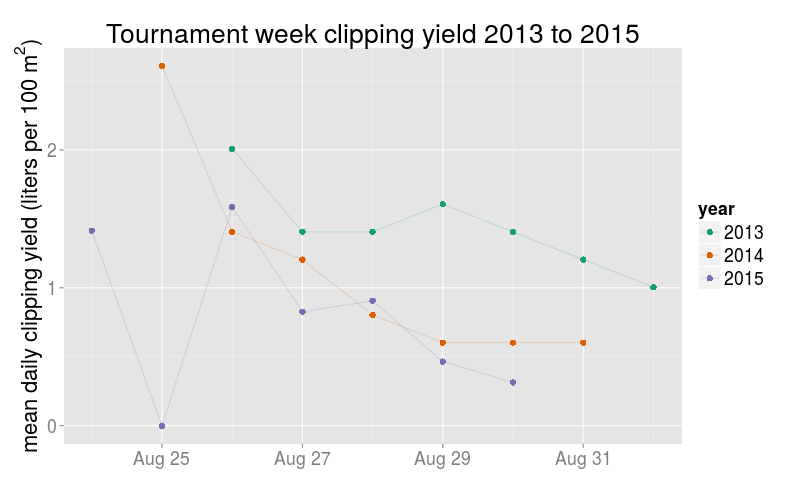
Clipping volume from the 2013 to 2015 KBC Augusta tournaments
These measurements don’t take much time to collect and they can be useful in evaluating how the maintenance work should be adjusted to achieve the desired green conditions.
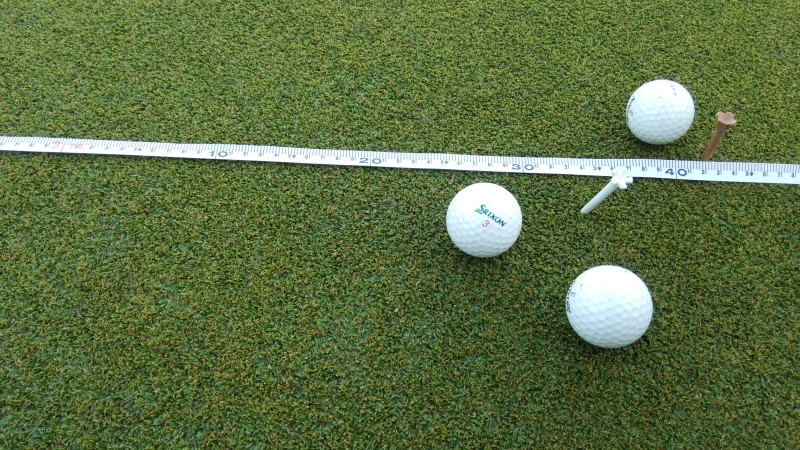
Golf balls and a measuring tape on a korai putting green during the KBC Augusta tournament
What about the work that was done to get this clipping volume, and the conditions produced?
- On the greens at Keya GC, 8.5 g N and 3.5 g K/m2 since the start of 2015.
- Mowing height for the tournament was 2.6 mm with the Shibaura 22 inch GEXE.
- Except when adjusted due to weather, the greens were mown 2x each morning, then rolled with a Toro lightweight roller, and then were mown 1x at the end of the day.
- Primo Maxx and soil surfactants applied to the greens.
- Irrigation added as necessary to prevent dry spots.
- Morning green speed during the tournament rounds ranged from 10.7 to 11.2 feet.
I wrote this on the ATC blog after the 2015 KBC Augusta tournament (https://www.blog.asianturfgrass.com/2015/09/tournament-week-clipping-volume.html). By this time, I was really starting to see how useful this measurement was, and just how repeatable the numbers were, and especially, just how easy it was to get such a valuable measure of how much the grass is growing.↩